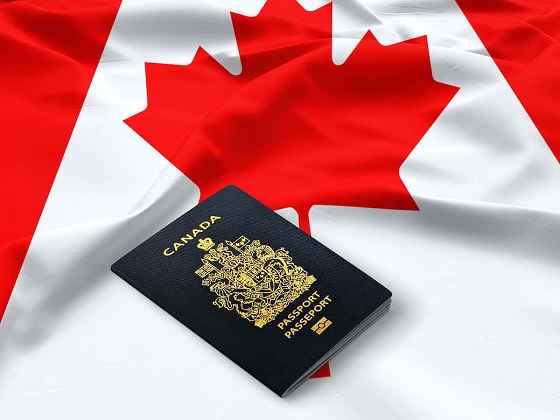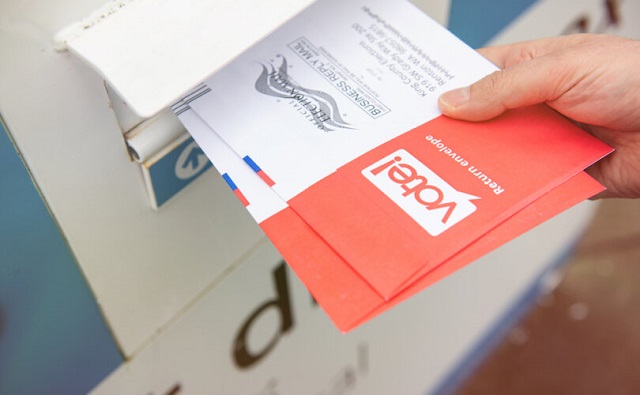Health
Setback for the Transgender movement: Michael Shellenberger on leaked files revealing medical malpractice on children and vulnerable adults

Video interview below background information from EnvironmentalProgress.org
LEAKED FILES FROM WPATH REVEAL WIDESPREAD MEDICAL MALPRACTICE ON CHILDREN AND VULNERABLE ADULTS AT GLOBAL TRANSGENDER HEALTHCARE AUTHORITY
World Professional Association of Transgender Health (WPATH) members demonstrate a lack of consideration for long-term patient outcomes despite being aware of the debilitating and potentially fatal side effects of cross-sex hormones and other treatments
Press Release: JDA Worldwide for Environmental Progress
Newly leaked files from within the leading global transgender healthcare body have revealed that the clinicians who shape how “gender medicine” is regulated and practiced around the world consistently violate medical ethics and informed consent. The files, which were leaked from within the World Professional Association for Transgender Health (WPATH), were published by the US-based think tank Environmental Progress.
WPATH is considered the leading global scientific and medical authority on “gender medicine,” and in recent decades, its Standards of Care have shaped the guidance, policies and practices of governments, medical associations, public health systems and private clinics across the world.
However, the WPATH Files reveal that the organization does not meet the standards of evidence-based medicine, and members frequently discuss improvising treatments as they go along. Members are fully aware that children and adolescents cannot comprehend the lifelong consequences of “gender-affirming care,” and in some cases, due to poor health literacy, neither can their parents.
“The WPATH Files show that what is called ‘gender medicine’ is neither science nor medicine,” said Michael Shellenberger, President and founder of Environmental Progress. “The experiments are not randomized, double-blind, or controlled. It’s not medicine since the first rule is to do no harm. And that requires informed consent.”
The raw files have been published in a report called The WPATH Files: Pseudoscientific surgical and hormonal experiments on children, adolescents, and vulnerable adults, which contains analysis by journalist Mia Hughes that puts the WPATH Files in the context of the best available science on gender distress.
Environmental Progress has made all files available to read at the end of the report. The leaked files include screenshots of posts from WPATH’s internal messaging forum dating from 2021 to 2024 and a video of an internal panel discussion. All names have been redacted other than several WPATH members of public significance, such as Dr. Marci Bowers, an American gynecologist and surgeon who is the President of WPATH, and the Canadian pediatric endocrinologist Dr. Daniel Metzger.
In the WPATH Files, members demonstrate a lack of consideration for long-term patient outcomes despite being aware of the debilitating and potentially fatal side effects of cross-sex hormones and other treatments. Messages in the files show that patients with severe mental health issues, such as schizophrenia and dissociative identity disorder, and other vulnerabilities such as homelessness, are being allowed to consent to hormonal and surgical interventions. Members dismiss concerns about these patients and characterize efforts to protect them as unnecessary “gatekeeping.”
The files provide clear evidence that doctors and therapists are aware they are offering minors life-changing treatments they cannot fully understand. WPATH members know that puberty blockers, hormones, and surgeries will cause infertility and other complications, including cancer and pelvic floor dysfunction. Yet they consider life-altering medical interventions for young patients, including vaginoplasty for a 14-year-old and hormones for a developmentally delayed 13-year-old.
The WPATH Files also show how far medical experiments in gender medicine have gone, with discussions about surgeons performing “nullification” and other extreme body modification procedures to create body types that do not exist in nature.
A growing number of medical and psychiatric professionals say the promotion of pseudoscientific surgical and hormonal experiments is a global medical scandal that compares to major incidents of medical malpractice in history, such as lobotomies and ovariotomies.
“Activist members of WPATH know that the so-called ‘gender-affirming care’ they provide can result in life-long complications and sterility and that their patients do not understand the implications, such as loss of sexual function and the ability to experience orgasm,” Shellenberger said. “These leaked files show overwhelming evidence that the professionals within WPATH know that they are not getting consent from children, adolescents, and vulnerable adults, or their caregivers.”
Environmental Progress has written to every WPATH member named in the files, as well as additional members whose names have been redacted, to confirm their comments and offer a right of reply. Two people responded – one confirmed that the comments attributed to them were correct, and another did not deny their comments but refuted Environmental Progress’ interpretation of them. Mention of Environmental Progress’ outreach to members via email was then later seen in the form of comments on WPATH’s internal messaging forum.
Interview with Michael Shellenberger from Jordan B Peterson Clips
READ: THE WPATH FILES AND REPORT
Addictions
Why can’t we just say no?

From the Frontier Centre for Public Policy
Drug use and violence have become common place in hospitals. Drug-addicted patients openly smoke meth and fentanyl, and inject heroin. Dealers traffic illicit drugs. Nurses are harassed, forced to work amidst the toxic fumes from drugs and can’t confiscate weapons. In short, according to one nurse, “We’ve absolutely lost control.”
“Defining deviancy down” is a cultural philosophy that emerged in the United States during the 1990s.
It refers to society’s tendency to adjust its standards of deviancy “down,” so that behaviours which were once unacceptable become acceptable. Over time, this newly- acceptable behaviour can even become society’s norm.
Of course, the converse must also be true — society looks down on those who label social behaviours “wrong,” deeming them moralistic, judgemental or simply out of touch with the realities of modern life.
Thirty years later, this philosophy is entrenched in British Columbia politics and policies. The province has become a society that cannot say “no” to harmful or wrong behaviours related to drug use. It doesn’t matter if you view drug use as a medical issue, a law-and-order issue, or both – we have lost the ability to simply say “no” to harmful or wrong behaviour.
That much has become abundantly clear over the past two weeks as evidence mounts that BC’s experiment with decriminalization and safe supply of hard drugs is only making things worse.
A recently-leaked memo from BC’s Northern Health Authority shows the deleterious impact these measures have had on BC’s hospitals.
The memo instructs staff at the region’s hospitals to tolerate and not intervene with illegal drug use by patients. Apparently, staff should not be taking away any drugs or personal items like a knife or other weapons under four inches long. Staff cannot restrict visitors even if they are openly bringing illicit drugs into the hospital and conducting their drug transactions in the hallways.
The public was quite rightly outraged at the news and BC’s Health Minister Adrian Dix quickly attempted to contain the mess by saying that the memo was outdated and poorly worded.
But his facile excuses were quickly exposed by publication of the very clearly worded memo and by nurses from across the province who came forward to tell their stories of what is really happening in our hospitals.
The President of the BC Nurses Union, Adriane Gear, said the issue was “widespread” and “of significant magnitude.” She commented that the problems in hospitals spiked once the province decriminalized drugs. In a telling quote, she said, “Before there would be behaviours that just wouldn’t be tolerated, whereas now, because of decriminalization, it is being tolerated.”
Other nurses said the problem wasn’t limited to the Northern Health Authority. They came forward (both anonymously and openly) to say that drug use and violence have become common place in hospitals. Drug-addicted patients openly smoke meth and fentanyl, and inject heroin. Dealers traffic illicit drugs. Nurses are harassed, forced to work amidst the toxic fumes from drugs and can’t confiscate weapons. In short, according to one nurse, “We’ve absolutely lost control.”
People think that drug policies have no impact on those outside of drug circles – but what about those who have to share a room with a drug-smoking patient?
No wonder healthcare workers are demoralized and leaving in droves. Maybe it isn’t just related to the chaos of Covid.
The shibboleth of decriminalization faced further damage when Fiona Wilson, the deputy chief of Vancouver’s Police Department, testified before a federal Parliamentary committee to say that the policy has been a failure. There have been more negative impacts than positive, and no decreases in overdose deaths or the overdose rate. (If such data emerged from any other healthcare experiment, it would immediately be shut down).
Wison also confirmed that safe supply drugs are being re-directed to illegal markets and now account for 50% of safe supply drugs that are seized. Her words echoed those of BC’s nurses when she told the committee that the police, “have absolutely no authority to address the problem of drug use.”
Once Premier David Eby and Health Minister Adrian Dix stopped denying that drug use was occurring in hospitals, they continued their laissez-faire approach to illegal drugs with a plan to create “safe consumption sites” at hospitals. When that lacked public appeal, Mr. Dix said the province would establish a task force to study the issue.
What exactly needs to be studied?
The NDP government appears to be uninformed, at best, and dishonest, at worst. It has backed itself into a corner and is now taking frantic and even ludicrous steps to legitimize its experimental policy of decriminalization. The realities that show it is not working and is creating harm towards others and toward institutions that should be a haven for healing.
How quickly we have become a society that lacks the moral will – and the moral credibility – to just to say “no.”
Susan Martinuk is a Senior Fellow with the Frontier Centre for Public Policy and author of Patients at Risk: Exposing Canada’s Health-care Crisis.
Addictions
British Columbia should allow addicts to possess even more drugs, federal report suggests

From LifeSiteNews
Despite the drug crisis only getting worse in British Columbia after decriminalization, a federal report by the Canadian Institutes of Health Research advocates for further relaxing its policy so addicts can possess even more drugs.
Despite the drug crisis only worsening since decriminalization, federal researchers are now advocating for British Columbia to allow the possession of even larger quantities of cocaine, claiming that current possession limits don’t allow addicts to buy enough.
According to a federal report published April 23 by Blacklock’s Reporter, the current decriminalization program in British Columbia approved by Prime Minister Justin Trudeau’s government has set cocaine possession limits “too low.”
“People who use drugs are less concerned about being arrested and feel more comfortable carrying substances they need,” said the report by the Canadian Institutes of Health Research. “The threshold of 2.5 grams is too low and is unreflective of users’ substance use and purchasing patterns.”
Under the policy, which launched in early 2023, the federal government began allowing people within the province to possess up to 2.5 grams of hard drugs – including cocaine, opioids, ecstasy and methamphetamine – without criminal penalty, but selling drugs remained a crime.
The policy has been widely criticized, especially after it was found that the province broke three different drug-related overdose records in the first month the new law was in effect.
However, now researchers are claiming that the new policy is insufficient for drug users.
“People who use drugs indicated the 2.5 gram threshold is too low and unreflective of their substance use patterns,” the report stated. “Although some people indicated the policy wouldn’t impact their purchasing patterns because they are unable to purchase large amounts at a time, others suggested it may force them to seek out substances more frequently which could increase their risk of harms.”
“Buying in bulk may be more economical particularly for people who use drugs,” it continued, adding that it was “common practice to purchase in bulk and split or share among peers.”
The recommendation comes as deaths from drug overdoses in Canada have gone through the roof in recent years, particularly in British Columbia.
The effects of decriminalizing hard drugs in various parts of Canada has been exposed in Aaron Gunn’s recent documentary, Canada is Dying, and in U.K. Telegraph journalist Steven Edginton’s mini-documentary, Canada’s Woke Nightmare: A Warning to the West.
Gunn says he documents the “general societal chaos and explosion of drug use in every major Canadian city.”
“Overdose deaths are up 1,000 percent in the last 10 years,” he said in his film, adding that “[e]very day in Vancouver four people are randomly attacked.”
Similarly, even Liberals have begun to condemn Trudeau’s “safe supply” program, linking them to “chaos” in cities.
“Safe supply“ is the term used to refer to government-prescribed drugs that are given to addicts under the assumption that a more controlled batch of narcotics reduces the risk of overdose – critics of the policy argue that giving addicts drugs only enables their behavior, puts the public at risk, disincentivizes recovery from addiction and has not reduced, and sometimes even increased, overdose deaths where implemented.
Last week, Liberal MP Dr. Marcus Powlowski revealed that violence from drug users has become a problem in Ottawa, especially in areas near so-called “safe supply” drug sites which operate within blocks of Parliament Hill.
“A few months ago I was downtown in a bar here in Ottawa, not that I do that very often, but a couple of colleagues I met up with, one was assaulted as he was going to the bar, another one was threatened,” said Powlowski.
“Within a month of that I was returning down Wellington Street from downtown, the Rideau Centre, and my son who is 15 was coming after me,” he continued. “It was nighttime and there was someone out in the middle of the street, yelling and screaming, accosting cars.”
-

 Automotive2 days ago
Automotive2 days agoThe EV ‘Bloodbath’ Arrives Early
-

 CBDC Central Bank Digital Currency1 day ago
CBDC Central Bank Digital Currency1 day agoA Fed-Controlled Digital Dollar Could Mean The End Of Freedom
-

 Business2 days ago
Business2 days agoHonda deal latest episode of corporate welfare in Ontario
-

 Frontier Centre for Public Policy1 day ago
Frontier Centre for Public Policy1 day agoHow much do today’s immigrants help Canada?
-

 espionage2 days ago
espionage2 days agoOne in five mail-in voters admitted to committing voter fraud during 2020 election: Rasmussen poll
-

 Brownstone Institute1 day ago
Brownstone Institute1 day agoThe Numbers Favour Our Side
-

 Fraser Institute4 hours ago
Fraser Institute4 hours agoFederal government’s fiscal record—one for the history books
-

 Alberta4 hours ago
Alberta4 hours agoPrincipal at Calgary Elementary School charged with possession of child pornography






